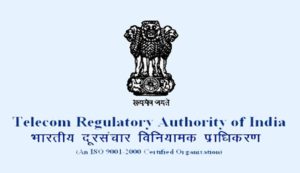Source: www.trai.gov.in
Communication has been a necessary facet of human life. It is because of this ability to communicate with one another that humans are also known as ‘Social animals’. The growth and development of science and technology has allowed people to connect over larger distances. Telecommunication plays an important part in modern times by transmission of messages over significant distances for the purpose of communication. Major sectors of the Indian telecommunication industry are telephone, internet and television broadcast Industry.
Regulatory Framework
The Government through its telecom branch- Department of Telecommunication enforces polices and guidelines for the regulation of telecommunication in India which is monitored by the Telcom Regulatory Authority of India (hereinafter referred to as “TRAI”) in accordance to the provisions of Telecom Regulatory Authority of India Act, 1997 (hereinafter referred to as “TRAI Act”).
Commercial Communication
In the past few years, telecommunications have become a mode of commercial communication for a number of corporate entities to boost their business.
Commercial communications are any voice calls/ messages using telecom services, where the primary purpose is to inform, advertise, or solicit business for goods or services, a supplier or prospective supplier of goods or services, business or investment opportunities or a provider or prospective provider of such opportunities.
Unsolicited Commercial Communication – A menace
Unsolicited commercial communication (hereinafter referred to as “UCC”) are the commercial communications which are neither as per the consent nor as per registered preference(s) of recipient. They are popularly known as spam communications.
The number of such fraudulent calls and messages have increased exponentially. The weaker verification process and access to novel technologies such as automated calling, the notorious elements have acquired the ability to reach ever larger target groups.
Solution by TRAI
With the objective to effectively deal with the nuisance of UCC, experienced by the subscribers, TRAI brought forth Telecom Commercial Communication Consumer Preference Regulation, 2018 (hereinafter referred to as the “Regulation”) on July 19, 2018.
Communications Not Spam
The Regulations aim to weed out spam communications and explicitly exclude the following from the purview of UCC:
- any transactional message or transactional voice call;
- any service message or service voice call;
- any message or voice calls transmitted on the directions of the Central Government or the State Government or bodies established under the Constitution, when such communication is in Public Interest;
- any message or voice calls transmitted by or on the direction of the Authority or by an agency expressly authorized for the purpose by the Authority.
Co-regulation where Telecom Service Providers/ Access Providers
The Regulations cast duty on the telecom service providers/ access providers to ensure compliance to the legal guidelines by devising Code(s) of Practice legally backed by regulation ensuring registration of entities, content, consent.
Intermediaries
The Regulations prescribe for the necessity to register all such entities and intermediaries providing cloud services or bulk messaging services, such as Senders or content providers, Principal Entities, aggregators and others.
Methodology to control spam communications
The Regulations introduced by TRAI provides for the below stated measures to mitigate the havoc created by spam communications:
- Adoption of Distributed Ledger Technology (or blockchain) as the regulatory technology to ensure regulatory compliance while allowing innovation in the market.
- Registration of senders (businesses and telemarketers) in order to verify their authenticity and diminishing calls/ messages from fraudulent entities.
- Registration of Headers so as to enable the customers of the senders to distinguish between differently classified communications sent for their specific purpose.
- Registration of subscribers’ consent has become mandatory providing them with complete control over their consent and the ability to revoke the consent already granted, at their option.
- Registered Message template to prevent deliberate mixing of promotional messages into the transactional stream.
- Fine grained control over preferences including such options as the time window in which to permit specific types of unsolicited communication.
Customer Complaint Registration Facility
The Regulations require Access Providers to establish Customer Complaint Registration Facility which shall not only provide modes to make complaints but also acknowledge their receipt and address them appropriately.
Penal consequences
In event of failure of the access provider to comply with the provisions of the Regulations, they shall be liable to fine up to INR 500,000 (USD 6914 approx.) and INR 100,000 (USD 1382 approx.) if it is found to be not imposing timely restrictions on outgoing usage of unregistered sender(s).
Conclusion
TRAI intends to enforce the Regulations with the ambition to bring about necessary flexibility and speed to combat the spammers who continually change their tactics and morph their identities to escape detection. While safeguarding against the annoyance caused by UCC, the Regulations at the same time distinguish these from transactional/ service/ Government communications.


